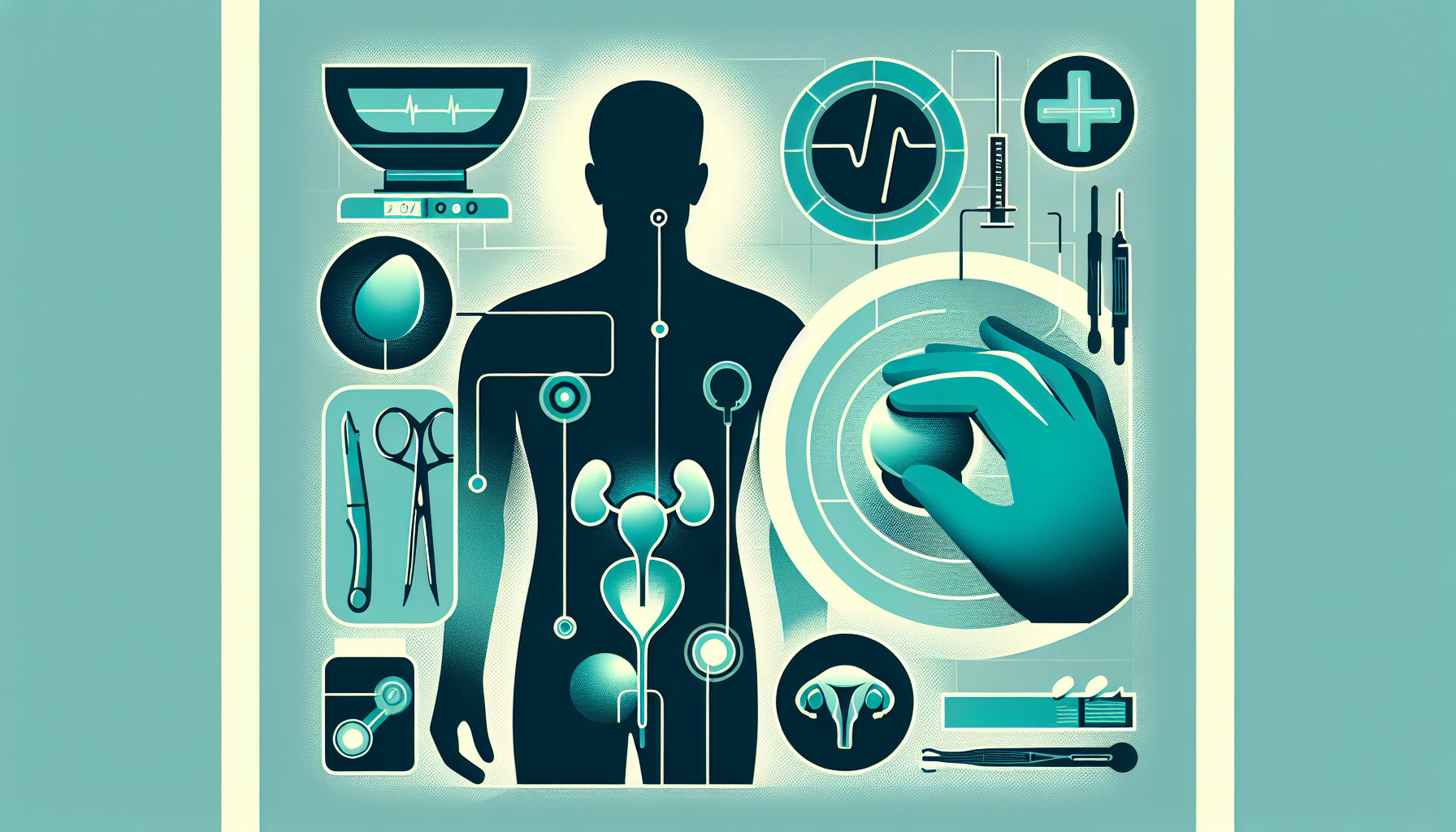Our Summary
This research paper looks at a common condition in older men called benign prostate hyperplasia (BPH), which can negatively affect quality of life due to urinary problems. The paper explores the link between BPH and metabolic syndrome (a group of conditions like high blood pressure and high blood sugar that happen together and increase your risk of heart disease, stroke, and type 2 diabetes).
The researchers are particularly interested in how changes in hormone levels that happen as we age might contribute to BPH. They look at various hormones, including sex hormones, insulin-like growth factor 1, thyroid hormones, and insulin.
The paper also proposes that a condition similar to polycystic ovarian syndrome (PCOS) in men might be a factor in the link between BPH and metabolic syndrome. This male version of PCOS is understood as an endocrine syndrome with a metabolic background, which can lead to type II diabetes, cardiovascular diseases, prostate cancer, BPH and prostatitis in old age. The researchers suggest that identifying this condition early could help prevent these long-term health issues.
FAQs
- What is the link between benign prostate hyperplasia (BPH) and metabolic syndrome as discussed in the research paper?
- How could changes in hormone levels contribute to BPH according to the researchers?
- What is the proposed male version of polycystic ovarian syndrome (PCOS) and how is it related to BPH and metabolic syndrome?
Doctor’s Tip
A helpful tip a doctor might tell a patient about prostate biopsy is to prepare for the procedure by discussing any concerns or questions with your healthcare provider beforehand. It is important to follow any pre-biopsy instructions given by your doctor, such as avoiding blood-thinning medications and fasting before the procedure. After the biopsy, it is normal to experience some discomfort or bleeding, so it is important to follow post-procedure care instructions provided by your healthcare provider. Additionally, it is important to follow up with your doctor for the biopsy results and to discuss any further treatment options or next steps.
Suitable For
Patients who are typically recommended for a prostate biopsy include those with:
- Abnormal results on a digital rectal exam (DRE)
- Elevated prostate-specific antigen (PSA) levels
- Family history of prostate cancer
- Abnormalities on imaging tests such as ultrasound or MRI
- Persistent urinary symptoms such as frequent urination, difficulty urinating, or blood in the urine
It is important for patients to discuss their symptoms and risk factors with their healthcare provider to determine if a prostate biopsy is necessary.
Timeline
Before a prostate biopsy:
- Patient may experience symptoms such as frequent urination, difficulty urinating, blood in urine or semen, or pain in the pelvic area.
- Patient may undergo a digital rectal exam (DRE) to check for abnormalities in the prostate.
- Patient may undergo blood tests to check for prostate-specific antigen (PSA) levels.
- Patient may undergo imaging tests such as ultrasound or MRI to get a clearer picture of the prostate.
After a prostate biopsy:
- Patient may experience some discomfort or pain in the rectal area and may notice blood in urine or semen for a few days.
- Patient may need to take antibiotics to prevent infection.
- Patient may need to avoid strenuous activities for a few days.
- Patient will receive the biopsy results and discuss next steps with their healthcare provider, which may include further testing or treatment for prostate cancer if detected.
What to Ask Your Doctor
Some questions a patient should ask their doctor about prostate biopsy include:
- Why do I need a prostate biopsy?
- What are the risks and benefits of having a prostate biopsy?
- How will the biopsy be performed?
- Will I need to take any precautions before or after the biopsy?
- How long will it take to get the results of the biopsy?
- What will the biopsy results tell us about my condition?
- What are the potential treatment options if the biopsy shows abnormalities?
- Are there any alternative tests or procedures that could provide similar information?
- What can I expect in terms of follow-up care after the biopsy?
- Are there any lifestyle changes I should consider to improve my prostate health and reduce my risk of future issues?
Reference
Authors: Cannarella R, Condorelli RA, Barbagallo F, La Vignera S, Calogero AE. Journal: Front Endocrinol (Lausanne). 2021 Feb 22;12:554078. doi: 10.3389/fendo.2021.554078. eCollection 2021. PMID: 33692752
